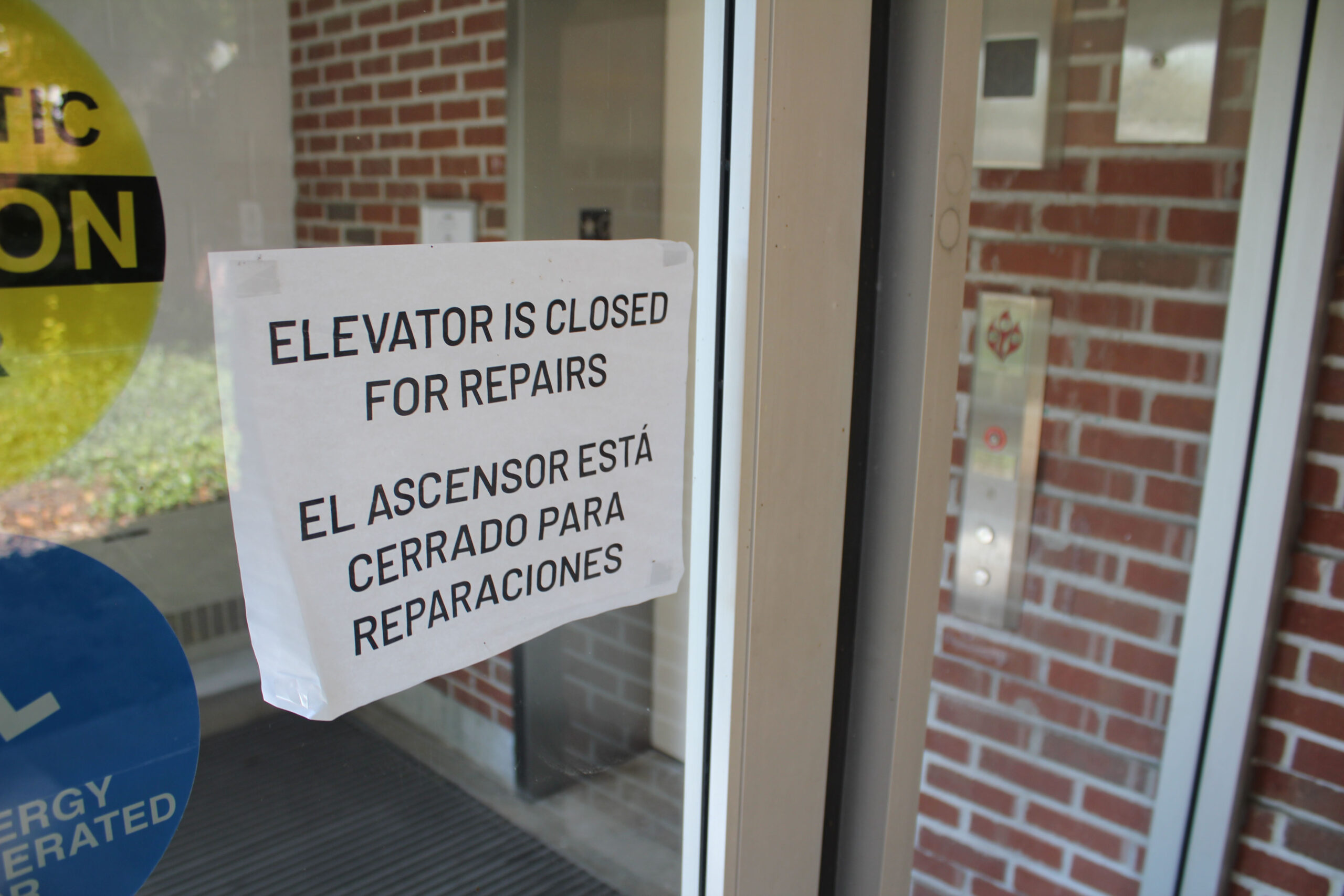Repairs on the elevator for the Administrative Building, which has been out of service since last December, will take longer and cost more than anticipated.
Goshen College officials had expected the elevator to be back in service in August at the start of the fall semester; the return to service may be pushed back to December.Over the summer, GC planned to remove the elevator cylinder, or jack, piece by piece and replace it with a new jack. The jack contains the piston that pushes the elevator car up and down. This process seemed straightforward and was expected to cost $90,000.
“We were all set to have the new jack,” said Brian Mast, the director of facilities. “They started putting the new [jack] in, but ran into an issue. They couldn’t get it down far enough because some dirt filled the hole.”
One method of solving the issue, which Mast called “dramatic and incredibly expensive,” is to drill a new hole and replace the casing.
As of now, Mast says GC has spent $90,000 on repairs to the elevator. If a new hole is needed, that will be an additional $140,000 to the repair.
“We’re trying to explore an option that would allow us to retain the casing we have,” Mast said. “Theoretically [there is] nothing wrong with [the casing]. We just need to figure out why there’s dirt at the bottom.”
Both Mast and the systems team at the Physical Plant are trying to come up with creative and cost-effective solutions to preserve the casing. They are also waiting to see what kind of alternative solutions the elevator manufacturer, Otis, might suggest.
Mast said that if they cannot find a creative solution and must dig a new hole for the jack, the elevator won’t reopen until the beginning of December.
When asked about the importance of the elevator for campus, Michelle Blank, the director of the Academic Success Center said, “Very! Very [important] … Our goal has to be that spaces be equitable, that everyone can utilize the spaces – not just students, faculty and staff, but also [the] community.”
Kristin Waltner, the interim registrar, explained how the registrar office addressed accessibility concerns at the start of the fall semester.
“Once we learned that there were delays and [the elevator] wouldn’t be functioning at the start of the term … we [worked with Blank and] notified faculty and students who were scheduled in the building and gave them a process if accessibility was going to be an issue,” Waltner said.
“Because we were proactive … we were able to find [classrooms] either on ground levels or buildings that have an elevator to relocate,” Waltner said. “The [relocating] process was fairly smooth.”
Colleen Geier, a professor of American Sign Language, decided to relocate her office and classrooms due to her back health. “I have been through a back specialist, a chiropractor, [and] physical therapy and got my back into pretty decent shape,” Geier said.
“I am not walking up five flights of stairs … multiple times a day,” Geier continued, “and in the AD Building, there is only one bathroom and it’s in the basement, so if I [have] to go to the bathroom now it’s six flights of stairs … I can’t do that. It’s going to mess up my back again.”
Geier encouraged her students to advocate for themselves and contact the registrar’s office if they have any types of health issues related to the elevator service. “Students especially don’t want to admit they need the elevator,” Geier said. “Nobody has to know what your health issues are … Everything should be accessible for everyone.”
The ASL department is scattered across campus due to the elevator. Geier relocated her office to Wyse Hall and teaches classes in Newcomer Center. Diana Boussom, instructor of ASL, relocated to the Church Chapel and teaches classes in the Music Center.
“We have a lot of elevators on the campus,” Mast said. “We want to keep them running well so that everybody’s lives can function well on campus – we recognize it’s a big deal.”
Mast estimates Physical Plant will have a plan for the elevator within the next few weeks and will communicate with campus as soon as possible.



